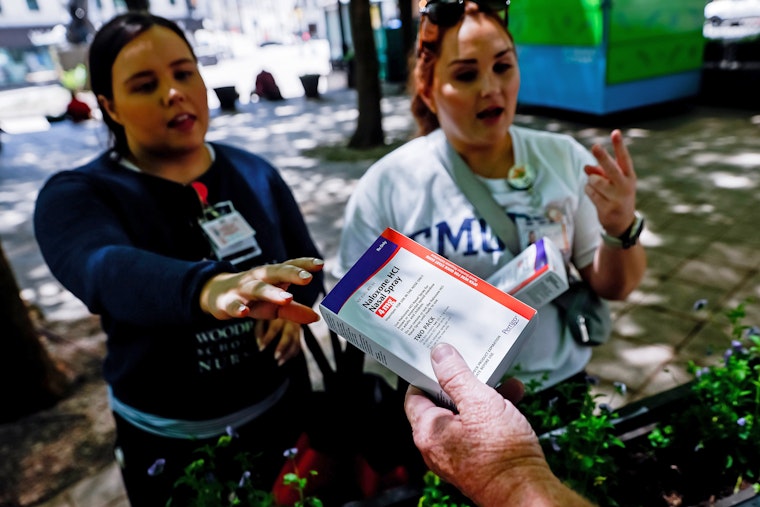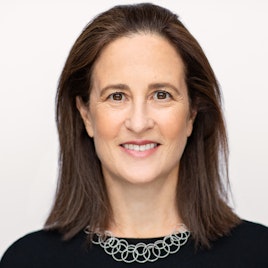A Lifesaving Loan: A New Investment to Help Curb the U.S. Overdose Crisis
By Sarah Evans & Georgia Levenson Keohane

As the impact investment arm of the Open Society Foundations, the Soros Economic Development Fund (SEDF) has committed more than $500 million to private-sector projects around the world. We look for innovative business ideas that will deliver positive social outcomes—and we take on more risk than mainstream investors in pursuit of that impact.
As an investment fund, we typically focus on large, systemic societal challenges where we believe businesses and markets can help deliver broad, transformative impact. Some of our more recent investments have been in large scale public-private partnerships focused on climate change in the Global South that seek to de-risk entire sectors and catalyze significant follow-on investment.
So why are we lending a million dollars to Remedy Alliance/For the People, a small nonprofit?
Remedy Alliance is a remarkable organization supporting community groups that in turn provide lifesaving healthcare and support for people who use drugs. It has been at the heart of the struggle against an ongoing epidemic of overdose deaths in the U.S. linked to the use of fentanyl and other synthetic opioids—an epidemic that surged during the COVID-19 lockdowns, and that claimed over 100,000 lives last year.
Remedy Alliance began in 2012 as a “buyers’ club” for the overdose reversal treatment naloxone—working on behalf of small, local organizations throughout the U.S.—that recognized the desperate need for access to the treatment as part of their harm reduction approach to drug use.
With their direct experience of—and trusted relationships with—people who use drugs, these groups were ahead of the medical establishment and public health authorities in grasping how naloxone could save lives when it was put in the hands of people who use drugs themselves. Remedy Alliance (which was supported by Open Society Foundations and other grant makers), also pooled their combined demand and purchasing power for naloxone, driving expanded production of the drug and securing lower, bulk prices.
As it grew into a significant purchaser of naloxone from pharmaceutical company manufacturers, Remedy Alliance also developed an innovative and successful business model—using its sales to state, county, and public health institutions to subsidize free distribution of the treatment to local, under-funded harm reduction groups. Today, Remedy Alliance is the largest distributor of injectable naloxone to over 200 established harm reduction partners across the United States, with around 30 percent of the market. Since 2012, it has distributed over 6 million doses in more than 44 states.
SEDF’s loan will now help Remedy Alliance respond to an important development in the naloxone marketplace, making the treatment easier to use: the U.S. Food and Drug Administration (FDA) approval of over-the-counter, non-prescription sales of a nasal spray version in 2023.
The FDA said the move would pave the way for naloxone “to be sold directly to consumers in places like drug stores, convenience stores, grocery stores and gas stations, as well as online”—part of what the Biden administration describes as a “saturation” approach to the treatment’s availability. Remedy Alliance, with its network of harm reduction partners, provides a way to overcome the continuing barriers to access—they can reach people who use drugs who lack the money to buy the treatment from pharmacies or other retailers, or who may be unwilling to face the stigma of even asking for the product, and who distrust public healthcare providers.
Remedy Alliance has also used its power as a distributor to work with a nonprofit generic manufacturer, which produced an even lower-cost version that it can sell at significantly lower prices to institutions, increasing the delivery of free doses to underfunded harm reduction groups.
For Remedy Alliance, the SEDF loan, offered at concessionary rates, will support this effort to ramp up the purchase, distribution, and sale of nasal naloxone, and to continue to expand sales and distribution of injectable treatments, which remain significantly cheaper than the nasal spray.
SEDF’s low-interest loan will give Remedy Alliance the working capital to surge its operations. It will also test an innovative financing mechanism that, if successful, can help Remedy Alliance attract support from additional lenders, allowing it to grow further. The model could also be replicated with other lifesaving medicines.
In the short term, this will result in more overdoses reversed, and more lives saved.
Sarah Evans is a division director of Equity for the Open Society Foundations.

Georgia Levenson Keohane is chief executive of the Soros Economic Development Fund, Open Society’s impact investment fund.